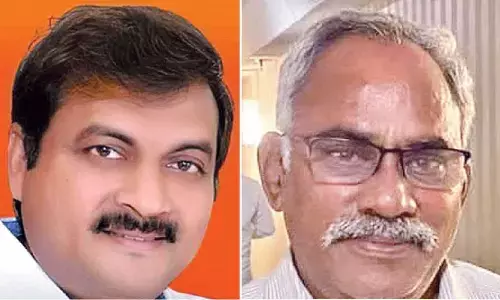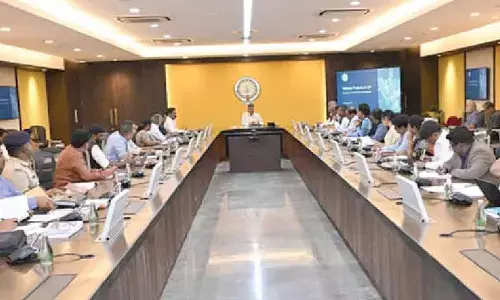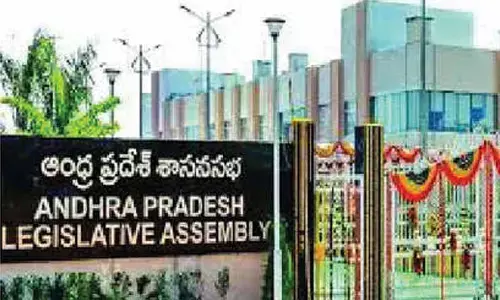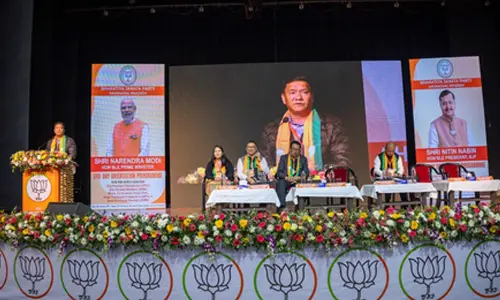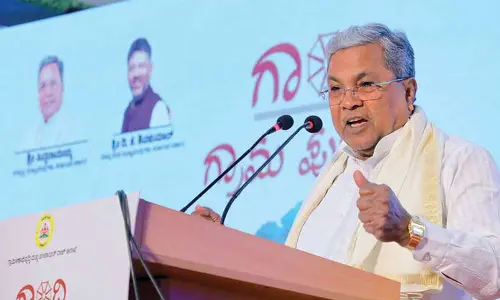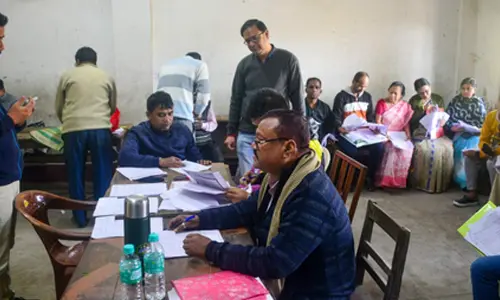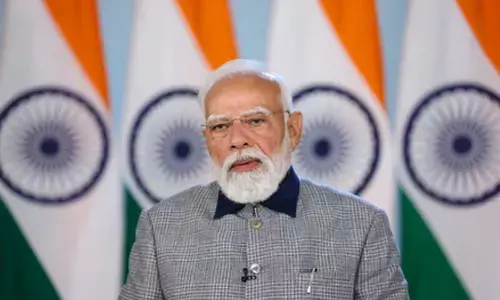Removal from Raj Bhawans

Madabhushi Sridhar: Removal From Raj Bhawans. Is Governor a subordinate who could be removed by a new Government? This is the current question before the people. When the UPA came to power at Center in 2004, it asked the NDA-appointed Governors to go.
Though there is no need to assign reasons (for removal of Governors), any removal as a consequence of withdrawal of the pleasure (of President) will be assumed to be valid and will be open to only a limited judicial review. If the aggrieved person is able to demonstrate prima facie that his removal was either arbitrary, mala fide, capricious or whimsical, the court will call upon the Union Government to disclose to the court, the material upon which the President had taken the decision to withdraw the pleasure
Is Governor a subordinate who could be removed by a new Government? This is the current question before the people. When the UPA came to power at Center in 2004, it asked the NDA-appointed Governors to go. That was challenged. In BP Singhal case (2010), it was contended before the Supreme Court that the withdrawal of Presidential pleasure under Article 156 cannot be an unfettered discretion, nor can it be arbitrary, capricious, unreasonable or mala-fide.
The power of removal should be used only if there is material to demonstrate misbehaviour, impropriety or incapacity. In other words, that removal should be only on existence of grounds which are similar to those prescribed for impeachment in the case of other constitutional functionaries. It was also contended that before a Governor is removed in exercise of power under Clause (1) of Article 156, principles of natural justice will have to be followed. All these serious constitutional issues were deliberated before the apex court.
Senior Counsel Soli J Sorabjee argued for the petitioner that to ensure the independence and effective functioning of Governors, certain safeguards will have to be read as limitations upon the power of removal of Governors under Article 156(1) having regard to the basic structure of the Constitution. He clarified that the petitioner's submission is not that a Governor has a fixed irremovable tenure of five years, but that there should be some certainty of tenure so that he can discharge the duties and functions of his constitutional office effectively and independently.
The Union contended that the power of the President to remove a Governor under Article 156(1) is absolute and unfettered. The term of five years provided in Article 156(3) is subject to the doctrine of pleasure contained in Article 156(1). The Constitution does not place any restrictions or limitations upon the doctrine of pleasure. Attorney General presented a different argument explaining the significance of pleasure doctrine. The Union Government did not claim any right to do what it pleases, as Constitution abhors arbitrariness and unfettered discretion. The removal should be for a reason, but such reason need not be communicated. The removal by applying the doctrine of pleasure need not necessarily relate to any act or omission or fault on the part of the Governor. In essence, the object of providing that the Governor shall hold office during the pleasure of the President was that if the President lost faith in the Governor or found him unfit for whatever reason, he can withdraw the presidential pleasure resulting in removal. The pleasure doctrine cannot be denuded of its width, by restricting its applications to specific instances of fault or misbehaviour on the part of the Governor, or by implying an obligation to assign or communicate any reason for the removal.
Attorney General clarified that Union has right to remove the Governor saying; “in a democracy, political parties are formed on shared beliefs and they contest election with a declared agenda. If a party which comes to power with a particular social and economic agenda finds that a Governor is out of sync with its policies, then it should be able to remove such a Governor. The Union Government will have the right to remove a Governor without attributing any fault to him, if the President loses confidence in a Governor or finds that the Governor is out of sync with democratic and electoral mandate.” The NDA Government now is presenting the same argument of the AG on behalf of UPA’s Sarkar. Paradox is whenever the power changes the hands, the ruling position and opposition mutually change the stand points and one steps into another’s shoe. If NDA wants to remove the Governors appointed by UPA, the latter would raise the same ‘defence’ which NDA put forward in 2004. But the law remains the same as established by the Supreme Court.
Dr B R Ambedkar stated: "If the Constitution remains in principle the same as we intend that it should be, that the Governor should be a purely constitutional Governor, with no power of interference in the administration of the province......". During the Constituent Assembly debates, K T Shah suggested that Governor should be irremovable. Supreme Court explained: The intention of the founding fathers was to adopt the route of Doctrine of Pleasure, instead of impeachment or enquiry, with regard to removal of Governors. It was assumed that withdrawal of pleasure resulting in removal of the Governor will be on valid grounds but there was no need to enumerate them in the Article.
National Commission for Review of Working of Constitution recommended in 2002 that some safeguard has to be devised against arbitrary withdrawal of President's pleasure, putting a premature end to the Governor's tenure. Supreme Court concluded that under Article 156(1), the Governor can be removed without assigning any reason or chance to defend, but not in an arbitrary, capricious or unreasonable manner, only to be exercised in rare and exceptional circumstances for valid and compelling reasons, which are not restricted to those enumerated by the petitioner (that is physical/mental disability, corruption and behaviour unbecoming of a Governor) but are of a wider amplitude.
No removal on political grounds
Supreme Court has firmly held that a Governor cannot be removed on the ground that he is out of sync with the policies and ideologies of the Union Government or the party in power at the Centre, not because Union has lost confidence in him. Though there is no need to assign reasons, any removal as a consequence of withdrawal of the pleasure will be assumed to be valid and will be open to only a limited judicial review. If the aggrieved person is able to demonstrate prima facie that his removal was either arbitrary, mala fide, capricious or whimsical, the court will call upon the Union Government to disclose to the court, the material upon which the President had taken the decision to withdraw the pleasure. If the Union does not disclose any reason or if the reasons disclosed are found to be irrelevant, arbitrary, whimsical, or mala fide, the court can interfere. However, the court will not interfere merely on the ground that a different view is possible or that the material or reasons are insufficient, as explained by the Chief Justice K G Balakrishnan and other Judges S H Kapadia, R V Raveendran, B Sudershan Reddy in B P Singhal case.
The problem lies in the politics of selecting personalities for the posts of Governors, not in the Constitution. If an eminent personality, having attained the status of statesman, is appointed as Governor, the question of removal or seeking resignation would not have arisen at all. When such a top constitutional position has been used as rehabilitation center for the defeated candidates or given in exchange of a political compromise etc, the objective of creating that position itself gets defeated. Governor should not be removed because he should be held in high esteem. It should be left to the personal discretion and decision of those who are in those positions to continue under a different political regime or resign. It is not the Constitution, but the character of such person that decides.
(The writer, Information Commissioner, New Delhi, can be reached at [email protected])








